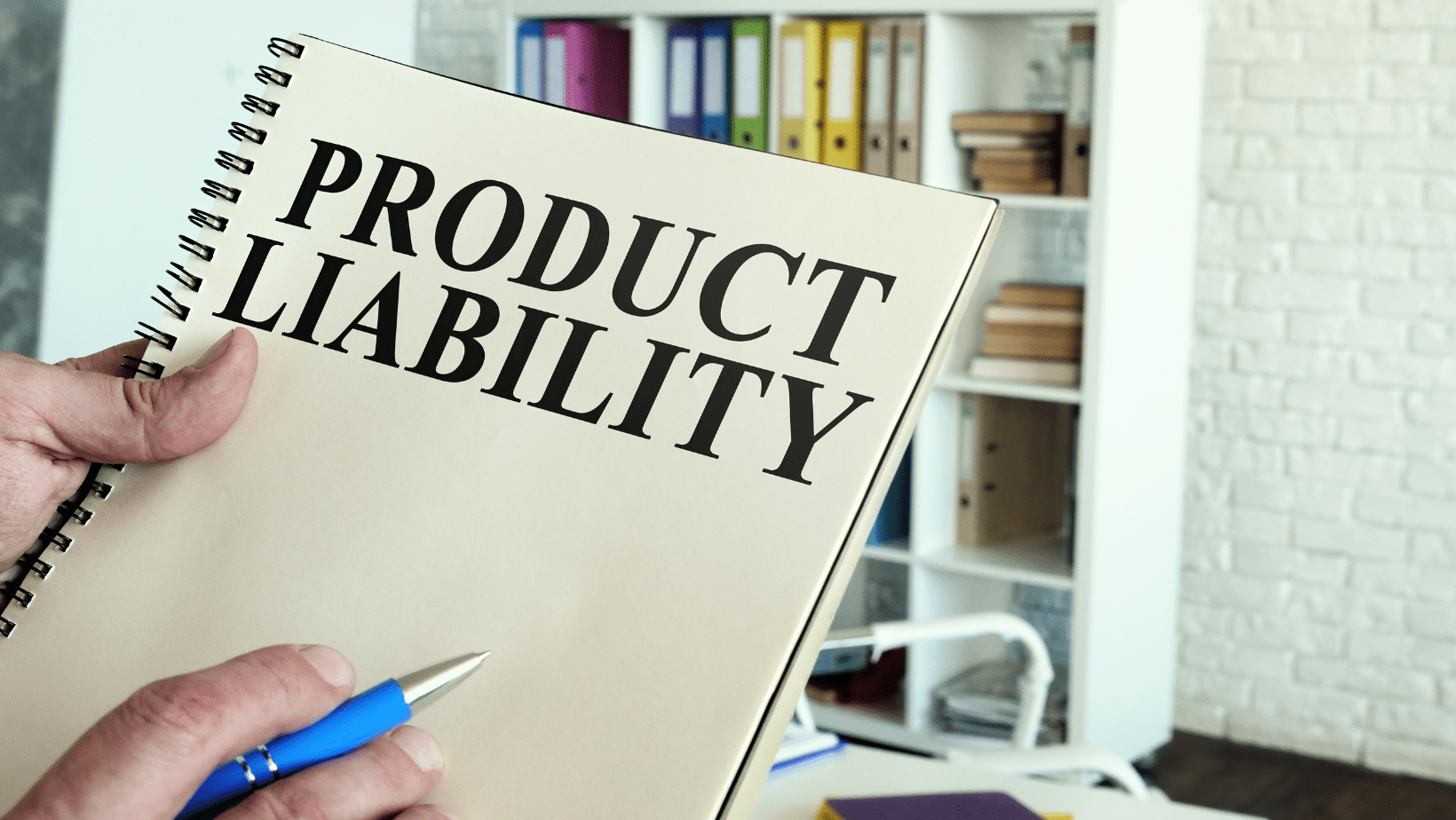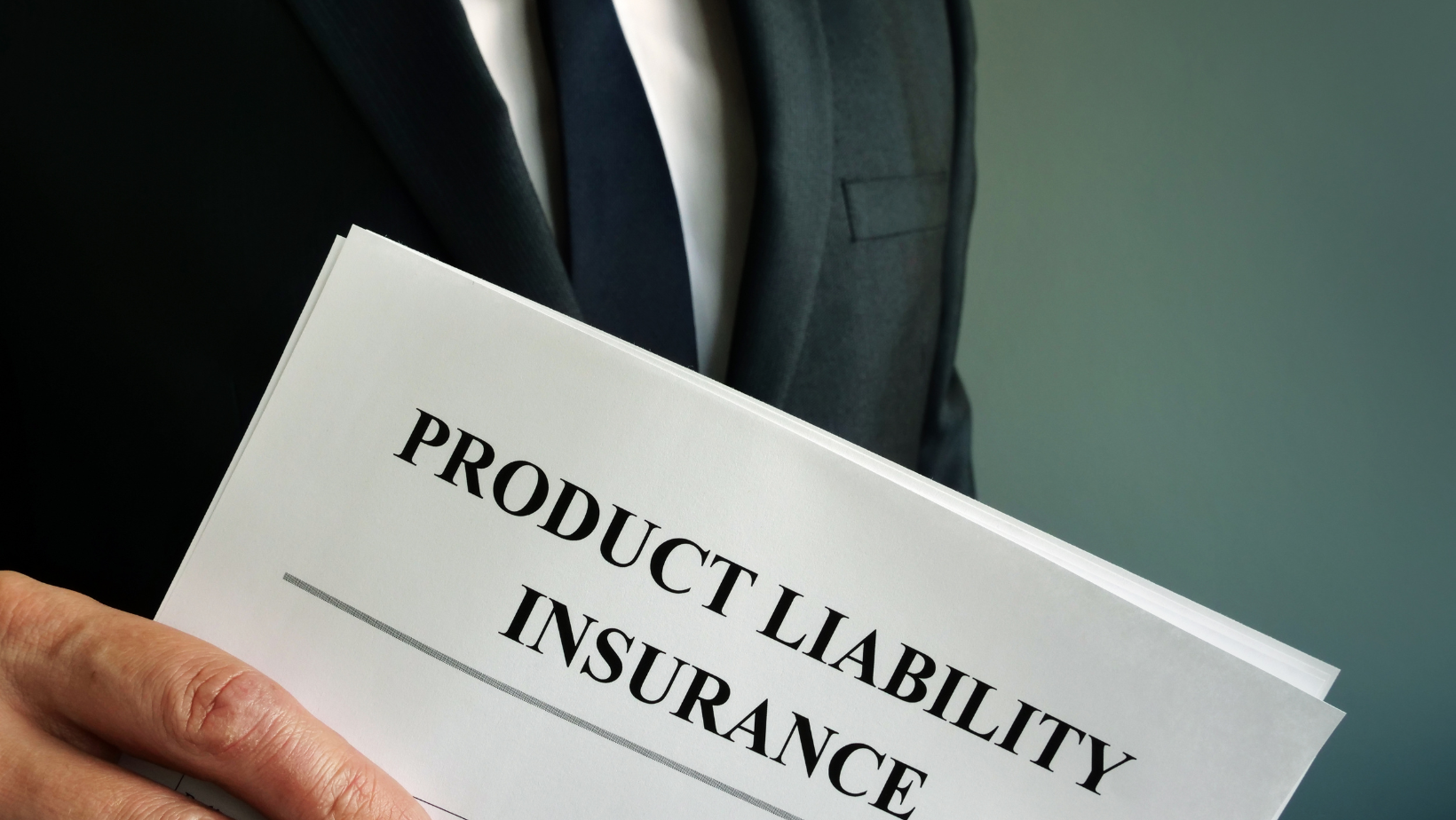
As a manufacturer, your main priority will likely be creating quality products that satisfy your customers’ needs. However, no matter how much care and effort you put into designing and producing your goods, there is always the risk of something going wrong. In today’s world, where consumers are more aware than ever, a single mishap can lead to a costly lawsuit that could potentially bankrupt your business. This is where product liability insurance comes in, providing you with the necessary protection and peace of mind to continue running your small business without fear of financial ruin.
In this article, we will explore the importance of product liability insurance for every manufacturer and why it should be a crucial part of your risk management strategy.
The Risks of Being a Manufacturer
Manufacturing is no easy feat. It involves several processes, from sourcing raw materials to assembling the final product, ensuring quality control measures are met. With so many moving parts, there is always the possibility of something going wrong. This could be due to a design flaw, a manufacturing error, or even inadequate instructions or warnings provided with the product.
In such cases, your customers may suffer injuries or financial losses, leading them to file a product liability claim against your company. Even if the claim is baseless, defending yourself in court can be time-consuming and expensive. Without proper insurance coverage, your business may be unable to survive such a financial blow.
Factors To Consider When Choosing Manufacturing Insurance
Manufacturing insurance protects manufacturers from financial losses due to claims against their products. However, not all policies are created equal, and it’s crucial to carefully consider your options before making a decision. Here are some key factors to keep in mind when choosing product liability insurance:
Coverage Limits
When it comes to product liability insurance, one of the most critical factors to consider is coverage limits. This refers to the maximum amount your insurance policy will pay in the event of a claim. It’s essential to choose a policy with adequate business income coverage limits that suit your business needs and potential risks. For example, if you manufacture high-end electronics, you may need higher coverage limits than a company that produces handmade crafts.
It’s also essential to remember that manufacturing companies may have different commercial auto insurance limits for claims, such as advertising injury and business property damage. Therefore, it’s crucial to carefully review your policy to ensure all potential risks are adequately covered.
Types of Coverage
Manufacturing liability insurance can come in various types, depending on your business needs and the products you manufacture. The most common types of coverage include general liability, product-specific liability, and completed operations liability. General liability insurance covers any injuries or damages caused by your products to third parties, such as customers or bystanders. Manufacturers’ insurance covers provide coverage for specific products that may have a higher risk of claims, such as pharmaceuticals or medical devices. Completed operations liability covers claims that arise after your product has been sold and is no longer in your possession.
Let’s say you manufacture children’s toys. If a child is injured while playing with one of your products and the parents file a claim against your company, general liability insurance would cover the damages. However, if you also produce a line of medical devices and a patient is harmed by one, product-specific liability insurance would provide coverage for that specific product.
Premium Cost
One crucial factor that every manufacturer must consider when choosing product liability insurance is the manufacturing insurance cost of premiums. The premium is the amount you pay for coverage, typically on a monthly or annual basis. While it may be tempting to opt for the cheapest policy available, keep in mind that lower premiums often mean lower coverage limits and limited protection.
It’s essential to strike a balance between affordable premiums and adequate coverage to ensure your manufacturing businesses are well-protected. A trusted insurance provider will work with you to understand your risks and provide a policy that fits your budget while providing comprehensive coverage.
Business Type and Industry
The type of business you operate and the industry you belong to can also play a significant role in determining your business insurance needs. For example, if you manufacture food products, you may need coverage for potential recalls or contamination issues. If you’re in the automotive industry, your risks may be higher due to the nature of your products.
Your insurance provider will take these factors into account when determining the best coverage options for your business, ensuring you have protection tailored to your specific needs.
Expected Sales Volume
It’s essential to consider your expected sales volume when choosing insurance for manufacturers. This refers to the projected amount of products you expect to sell within a specific period, typically a year. It’s an essential factor because the higher your sales volume, the greater your potential risks and exposure to liability coverage claims.
For example, let’s say you’re a manufacturer of household appliances, and your company is projected to sell 100,000 units in the next year. If just 1% of those units result in a product liability claim, that’s still 1,000 potential cases. Without adequate commercial insurance coverage, defending against even a fraction of those claims could have a significant financial impact on your business.
Prior Claims History
Another crucial factor to consider when choosing product liability insurance is your prior claims history. If your company has a history of past claims, it may be challenging to find affordable coverage, as insurance companies may view you as a higher risk. Additionally, if you have had multiple claims in the past, it’s essential to review the details of those cases carefully and take steps to prevent similar incidents from happening in the future. This shows insurers that you are proactive in managing risks and could result in lower premiums.
If a company that manufactures household cleaning products has a history of multiple claims related to skin irritation caused by their products, insurance providers may view them as high risk and charge higher premiums. However, if the company takes steps to improve its product formulation and labeling to prevent future claims, it can show insurers that they are proactive in managing risks and potentially negotiating lower premiums.
Reputation and Financial Stability of Insurance Provider
The reputation and financial stability of the insurance provider are essential factors to consider when choosing product liability insurance for your manufacturing operations. It’s crucial to research and select a reputable insurer with a strong track record in handling claims and providing timely payouts. A reliable insurance company should also have robust financial stability, meaning they have enough reserves to cover any potential claims that may arise.
For example, a small manufacturing company chooses an insurance provider with a poor reputation and unstable financials. A few years down the line, they face a significant liability claim due to one of their products causing harm to multiple consumers. However, their insurance provider cannot cover the full amount of the claim, leaving the business responsible for paying out of pocket. This could potentially bankrupt the company and result in the closure of their operations.
Benefits of Manufacturing Liability Insurance
Aside from the financial risks that product liability insurance protects against, there are also numerous other benefits to having this type of coverage for your manufacturing business. Here are some of the common ones:
Protects Your Brand Reputation
Product liability insurance plays a crucial role in protecting your brand’s reputation. In today’s age of social media and instant sharing, a product defect or safety issue can quickly go viral and damage your company’s image. With product liability insurance, you have the resources to address any potential issues promptly and compensate affected customers, mitigating the impact on your brand reputation.
For example, a toy manufacturer produces a line of stuffed animals that is later found to have small parts that pose a choking hazard to young children. The defect is discovered before any injuries occur, and the company’s product liability insurance covers the costs of recalling and replacing the toys, preventing negative publicity and maintaining the brand’s reputation.
Helps You Meet Legal Requirements
Product liability insurance is often a legal requirement for manufacturers, depending on the industry and the location of your business. For example, in the United States, many states have laws that mandate businesses to have product liability insurance if they sell products within their jurisdiction. Failing to have this coverage could result in fines or even legal consequences.
Additionally, some retailers or vendors may require proof of product liability insurance before agreeing to sell your products. Without this coverage, you could miss out on valuable business opportunities.
Covers Legal Expenses and Damages
One of the most significant benefits of product liability insurance is that it covers legal expenses and damages in case of a liability claim. Legal fees and settlements can quickly add up, especially if multiple claims are made against your company. With product liability insurance, you have the financial protection to handle these manufacturing insurance costs without jeopardizing your business’s operations.
For example, a food manufacturer faces a lawsuit from several customers who became ill after consuming their product. The legal fees and potential settlements could be financially crippling for the company, but with product liability insurance, they can handle these expenses and continue their operations uninterrupted.
Provides Peace of Mind
Knowing you have adequate product liability insurance coverage can give you peace of mind as a manufacturer. It allows you to focus on your business operations and product development without constantly worrying about the potential financial repercussions of a liability claim. With this assurance, you can make decisions that are best for your business’s growth and success.
For example, a small cosmetics company is launching a new line of skincare products. By having product liability insurance in place, they can confidently market and sell their products without fearing the financial impact of a potential liability claim.
Demonstrates Your Commitment to Quality and Safety
Product liability insurance shows your commitment to producing safe and high-quality products as a manufacturer. It demonstrates that you are prepared to take responsibility for any issues that may arise and provides reassurance to customers and stakeholders.
For example, a company that manufactures bathing products for infants can showcase their product liability insurance as proof of their dedication to safety and quality. This can help build trust with customers and potentially attract new business.
Covers Product Recalls
In the event of a defective product, product recalls may be necessary to prevent further harm to consumers and protect your brand’s reputation. However, conducting a recall can be costly and time-consuming. Product liability insurance can cover the expenses associated with a recall, ensuring that your business’s finances are not impacted significantly.
For example, an electronics manufacturer discovers a defect in one of their products and issues a voluntary recall to prevent any potential injuries. The costs of recalling and replacing the product are covered by their product liability insurance, allowing them to minimize the financial impact on their business.
Can Be Tailored to Your Specific Needs
Product liability insurance is not a one-size-fits-all solution. It can be customized to meet the specific needs of your manufacturing business. This flexibility allows you to tailor your coverage based on the types of products you manufacture, potential risks and liabilities, and your budget.
For example, an automotive manufacturer may face different liabilities than a beauty product manufacturer. With tailored product liability insurance, the automotive manufacturer can ensure adequate coverage for potential defects in their products, while the beauty product manufacturer can focus on potential allergies or reactions to their products.
Promotes Long-Term Business Success
Having product liability insurance in place can contribute to the long-term success of your manufacturing business. By protecting your company’s financial stability, reputation, and operations, you are setting yourself up for continued growth and success.
For example, a clothing manufacturer invests in product liability insurance to expand their business into new markets. The coverage gives them the confidence to take risks and explore new opportunities without the fear of potential liability claims hindering their progress.
Factors Manufacturers Should Avoid Doing When It Comes to Manufacturing Insurance
As important as it is to have product liability insurance, there are also some common mistakes that manufacturers should avoid when it comes to this coverage. These include:
- Not reviewing and updating insurance policies regularly: As your business grows and evolves, so do the risks and liabilities associated with your products. Therefore, it’s essential to review and update your product liability insurance policy regularly to ensure it adequately covers your company’s needs.
- Not understanding the coverage and exclusions: It’s crucial to thoroughly understand what is covered and excluded in your product liability insurance policy. Failure to do so could result in unexpected expenses or claims not being covered when a liability issue arises.
- Skipping on proper risk management practices: While product liability insurance provides financial protection, it should not be seen as a substitute for proper risk management practices. Manufacturers should prioritize product safety and quality control to mitigate potential liability risks.
- Not disclosing all necessary information: When applying for product liability insurance, it’s essential to disclose all relevant information about your products, manufacturing processes, and history. Failure to do so could result in denied claims or even policy cancellation.
Conclusion
Product liability insurance is an essential investment for manufacturers. It not only provides financial protection and peace of mind but also showcases your dedication to producing safe and top-notch products. By avoiding common pitfalls and obtaining adequate coverage tailored to your business’s requirements, you can position yourself for long-term success in the manufacturing industry.
Don’t let potential liability claims jeopardize the growth and reputation of your business. Ensure you have the right product liability insurance in place. Remember, it’s always better to be safe than sorry! So, invest in product liability insurance today and secure the future of your business. After all, your products are not just your livelihood but also a reflection of your brand’s values and commitment to safety and quality. Take the necessary steps to protect them and your business now. Happy manufacturing!








